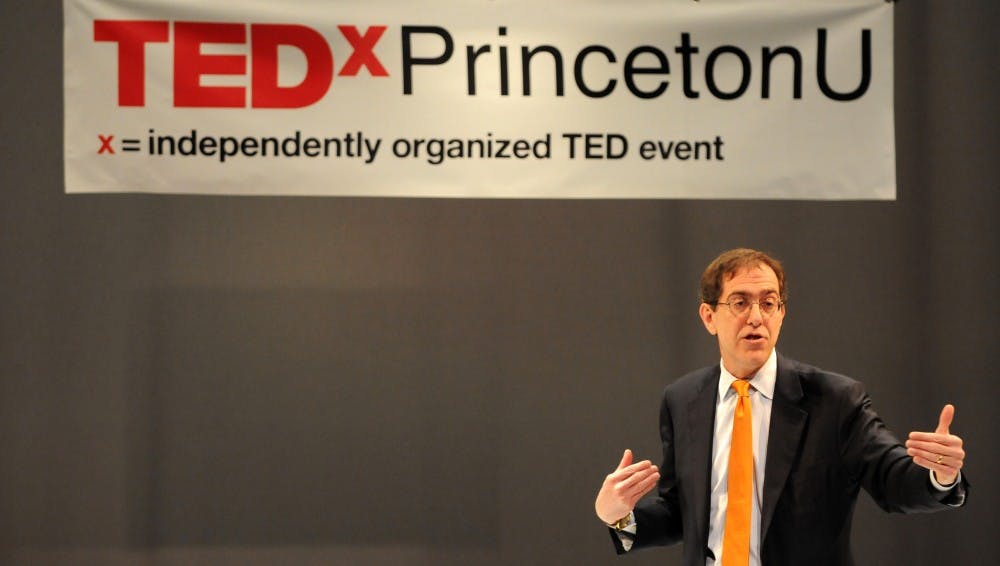The changing landscape of education in the digital age was a prominent topic of discussion at TEDx PrincetonU, an event that featured 12 short talks on the topic of “Disrupt" last Saturday. Several speakers focused on the disruption of our current education and university systems, including University President Christopher Eisgruber ’83 and Jeremy Johnson, who was formerly of the Class of 2007 but did not graduate.
Eisgruber argued that “lectures on stages” will never fully be replaced by video lectures because the ability for professors to motivate students personally, engage them through interpersonal contact and individualize curriculum is paramount to education.
Eisgruber asked the audience to recall an educator who had transformed their thinking.
“Could that teacher and their impact on your life be replaced by a video transmission? I’m certain the answer to that question is no,” Eisgruber said.
Johnson, acofounder of 2U, which partners with universities to offer online educational programs,agreed with Eisgruber. He argued that the perception that “open education online is going to make universities go obsolete” is false. After tracing the evolution of the university through technological innovations, including the development of the Gutenberg press and the “moving picture machine,” Johnson argued that universities “have evolved, but have strong staying power.”
“This isn’t just a tectonic shift in higher education. It may be the last one. We’re actually entering the golden age of academia,” Johnson stated, referring to universities’ ability to harness the Internet to expand and improve their impact.
As cofounder of CommonBond, a platform that helps university students seek loans, David Klein also realized the need for transformation of the education sector. Klein discussed “disruption in the sense of disruption of you” and recounted a transformative period which allowed him to “become a disruptor” of the broken student loan system.

Deborah Chang ’10, founder of The Conversation Coach, a service that guides people through high-stakes conversations, discussed what she called educators’ failure to address the problem of “failing successfully.” Drawing parallels between her experience as a rock-climber and the challenges of navigating rapidly changing modern industries, Harrison encouraged the audience to “take the leap,” leaving their comfortable life plans in the name of solving big problems, such as bridging the gap between entrepreneurs and educators.
Several academics discussed disruption in their respective disciplines.
On the other hand, Renee Hlozek, a postdoctoral fellow in astrophysics, looked to the history of cosmology to recount how data has changed our view of the universe, which furthermore “changes the perception of ourselves.”
“It is with great privilege that I am able to not only think about the universe, but use data to ask and answer questions,” Hlozek said. “I wait with intrepid excitement for the next cosmological disruption.”

The TEDx event, held in Theatre Intime, was organized by codirectors Jason Yu '16 and Christopher Huie '16 of the Princeton Social Enterprise Initiative, under the guidance of the TED Conference program. At the event, PSEI announced it plans to make the talks an annual event.








